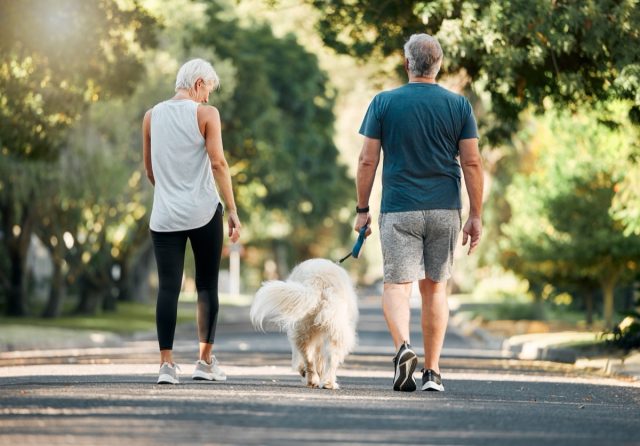This One Habit Can Boost Your Fitness Fast, Says New Study

Let’s face it: Squeezing workouts into a jam-packed schedule isn’t always easy. Between work meetings and deadlines, family obligations, and essential downtime, fitness may fall to the very bottom of your priority list. But what if one simple tweak to your exercise regimen could instantly boost your fitness? New research reveals exactly how to fast-track results.
New Study Reveals Consistency Can Boost Your Fitness Fast
When you finally carve out time to work out, when do you typically do it? Some individuals live for early morning sweat sessions, kicking off the day with an invigorating yoga flow or outdoor run. Others prefer to save workouts for later on, using them as a way to decompress after a long day’s work, whether hitting the weight room, pedaling through a spin class, or joining a heart-pumping kickboxing session.
Whatever your preference may be, a new University of Florida Health study published in Medicine & Science in Sports and Exercise reveals that both timing and consistency of daily physical activity can be total game-changers in your efforts. This may require tweaking your day-to-day just a bit—but it will be well-worth it!
Morning Movers Came Out on Top

The researchers studied 800 older individuals with the average age of 76. Each participant was required to wear a wrist device that continuously tracked their physical activity levels for one full week (seven days). Following that, the participants completed cardiopulmonary exercise testing to get a complete evaluation of their respiratory and cardiovascular health.
The bottom line? Timing and regularity can make all the difference in the world. Per the study’s findings, individuals who moved most in the morning hours—and on a more consistent basis—experienced better lung fitness, heart health, and walking efficiency compared to those who trained later in the day and less consistently.
Every Bit of Movement Counts

“While we’ve long known that being active supports healthy aging, this study reveals that when you’re active may also matter,” Karyn Esser, Ph.D., senior study author and professor and chair of the UF College of Medicine’s Department of Physiology and Aging shared. “The circadian mechanisms that generate daily rhythms in our system are important for our well-being.”
It’s important to note that physical activity encompasses all daily movement, whether that be running errands, cleaning your home, tending to your garden, walking, or grocery shopping.
Needless to say, it’s essential to make working out a regular habit. No excuses! Adding more movement to your day is a surefire way to improve your health and overall well-being—well into old age.